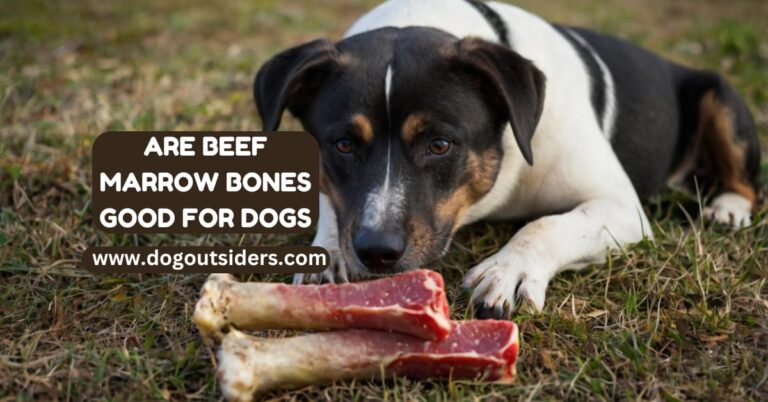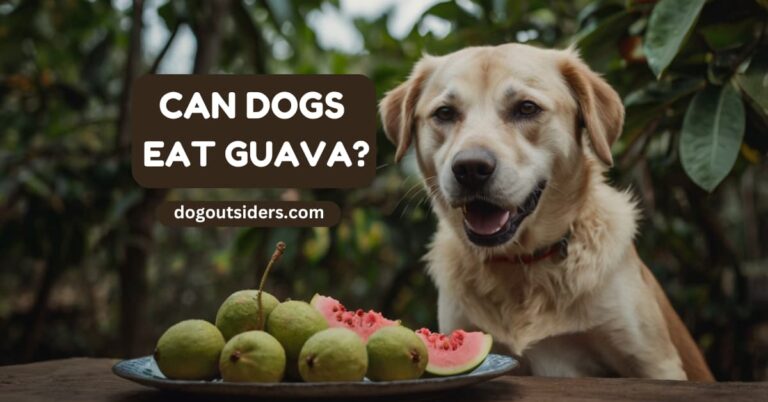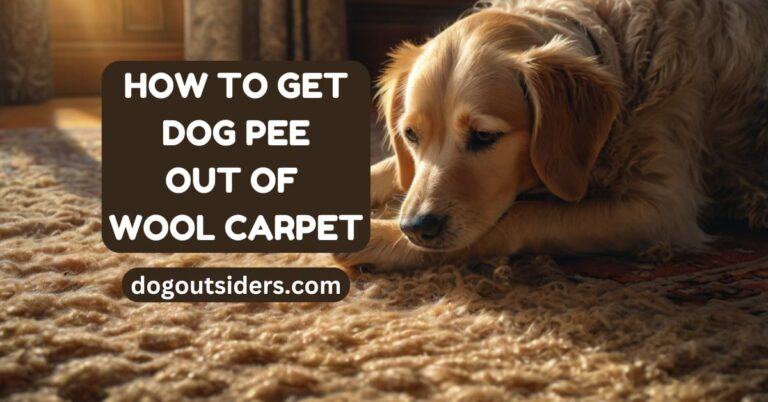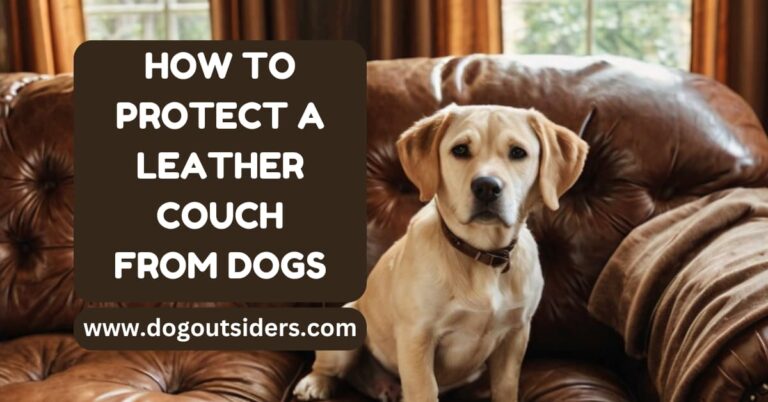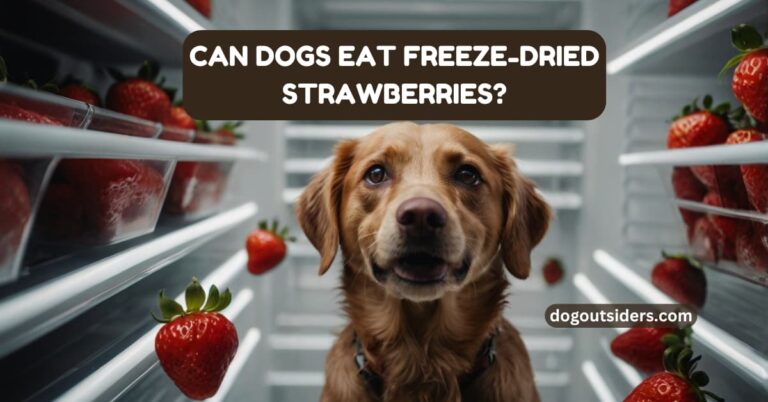I stumbled upon a concerning question: can eating aluminum foil kill a dog? The thought sent me on a quest for answers, exploring the potential dangers lurking in everyday items. As I uncovered information, it became clear that such accidents are more common than expected, highlighting the importance of pet safety awareness. Exploring this topic sheds light on the risks our furry friends face and emphasizes the significance of pet-proofing our surroundings. Join me as we navigate through the historical context and current implications of this critical issue, aiming to safeguard our beloved pets from harm.
Key Takeaways
- Immediate Actions to Take
- If your dog has ingested aluminum foil, contact your veterinarian or a pet poison hotline immediately for guidance.
- Monitor your dog for symptoms like vomiting, lethargy, or abdominal pain.
- Understanding Aluminum Foil
- Aluminum foil can be harmful to dogs if ingested, leading to potential health issues like intestinal blockages.
- Health Risks for Dogs
- Ingesting aluminum foil can cause serious health risks for dogs, including gastrointestinal obstructions that may require surgical intervention.
- When to Seek Help
- Seek veterinary assistance promptly if you suspect your dog has consumed aluminum foil to prevent complications and ensure proper treatment.
- Preventative Measures
- Keep aluminum foil and other potentially harmful items out of your dog’s reach to avoid accidental ingestion and associated health risks.
Can Eating Aluminum Foil Kill a Dog?
Ingesting aluminium foil is generally not fatal to dogs. However, eating it can pose significant health risks. If a dog ingests aluminum foil, it can cause gastrointestinal obstruction or irritation. These leaves can be sharp and pointed, which can cause digestive irritation. Eating them can cause pain and possible internal damage. Symptoms such as your dog vomiting, feeling lethargic, loss of appetite or stomach upset are signs that your dog needs better attention.
Immediate Actions to Take
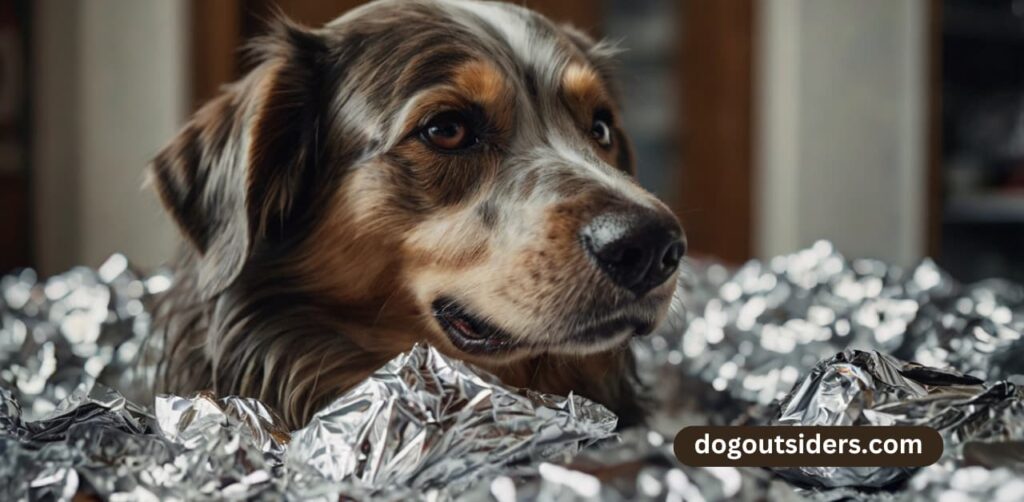
Recognize Signs of Trouble
Identify unusual behavior in the dog, such as vomiting or lack of appetite. Watch for signs of abdominal pain, like whining or restlessness. Monitor the dog’s stool for any changes, especially if it contains blood.
Contact a Vet Quickly
Seek veterinary assistance immediately if the dog shows severe symptoms. Provide the vet with details about the amount of foil ingested and any other substances involved. Follow the vet’s advice on next steps for treatment or observation.
Home Care Steps
Observe the dog closely for 24-48 hours after ingestion. Offer small, frequent meals to help facilitate digestion. Ensure the dog has constant access to fresh water to stay hydrated.
Understanding Aluminum Foil
Composition and Uses
Aluminum foil is crafted from pure metallic aluminum, making it a versatile material for various purposes. Its primary function revolves around cooking and food storage, owing to its ability to withstand high temperatures. The malleability of aluminum foil allows it to conform to different shapes, making it ideal for wrapping food items securely.
Common Household Presence
In most households, aluminum foil is a staple item commonly found in kitchens and food preparation areas. It often comes in handy for covering dishes, lining baking sheets, or wrapping leftovers. Due to its widespread use, dogs may encounter aluminum foil in the environment, especially when it’s used to wrap enticing food items like leftovers or treats.
I always ensure to keep aluminum foil out of my dog’s reach to prevent any accidental ingestion. Dogs are naturally curious animals and may be attracted to the smell of food remnants wrapped in foil. Therefore, it’s crucial to dispose of used foil properly to avoid any potential hazards for pets.
Health Risks for Dogs
Physical Reactions to Foil
Dogs may experience gastrointestinal discomfort if they ingest aluminum foil, leading to vomiting or diarrhea. Choking hazards are present with larger pieces, causing breathing difficulties or pawing at the mouth. Rarely, allergic reactions like swelling or hives can occur post-ingestion.
Potential Blockages
Large amounts of aluminum foil can create gastrointestinal blockages in dogs, posing a severe health risk. These blockages might necessitate surgical intervention if they do not pass naturally through the digestive system. Look out for symptoms such as lethargy, loss of appetite, or difficulty defecating.
Toxicity Concerns
Aluminum foil itself is not inherently toxic to dogs but consuming large quantities can cause physical harm. It is crucial to examine any underlying health conditions that could worsen the impact of foil ingestion. Consulting a vet is essential to understand potential long-term effects and ensure the dog’s well-being.
When to Seek Help
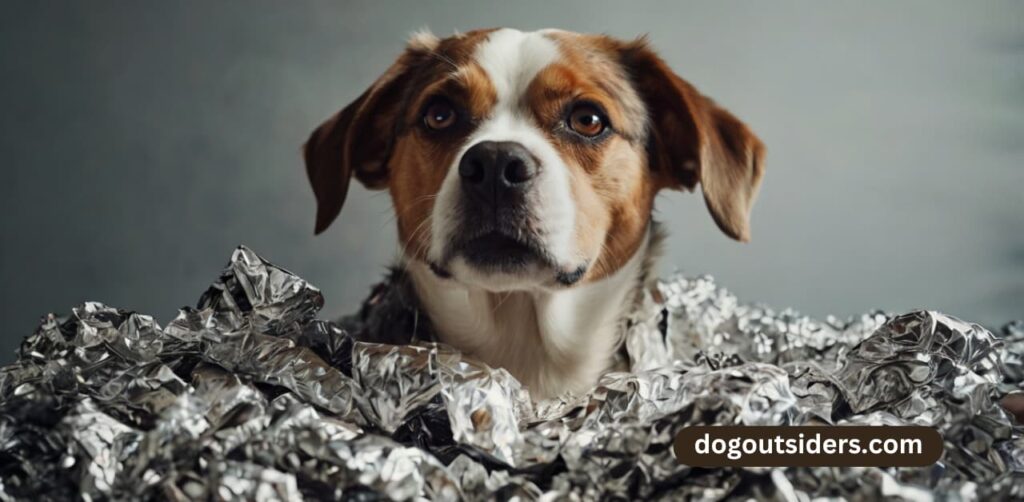
Large Quantity Ingestion
Assess the risk associated with dogs consuming large quantities of aluminum foil. Sharp edges on torn foil pieces can cause internal injuries as they pass through the digestive tract. The size and shape of the ingested foil play a crucial role in determining the severity of the situation.
Understand that the size and shape of the foil pieces can affect the risk of obstruction. In cases where a dog ingests a substantial amount of aluminum foil, there is a high risk of intestinal blockage. This can lead to severe complications if not addressed promptly.
Evaluate the urgency of veterinary care based on the amount ingested. If your dog has consumed a significant quantity of aluminum foil, it is essential to seek immediate veterinary attention. X-rays may be necessary to determine the extent of the ingestion and plan for appropriate treatment.
Toxic Substances Wrapped Inside
Identify the dangers of toxic foods or substances wrapped in aluminum foil. Certain toxic foods, such as chocolate, onions, or garlic, can be harmful to dogs even in small quantities. When these items are wrapped in foil and ingested by a dog, the risks escalate significantly.
Consider that some common human foods can be harmful to dogs when ingested. It’s crucial to be aware of foods that are toxic to dogs and ensure they are kept out of reach. Wrapping these foods in aluminum foil adds an additional risk factor if accidentally consumed by your pet.
Discuss with a vet about specific foods that pose risks if consumed with foil. Seeking advice from a veterinarian regarding dietary hazards associated with aluminum foil ingestion is essential. They can provide guidance on safe feeding practices and potential treatment options in case of emergencies.
Regular Ingestion Patterns
Recognize that habitual foil eating may indicate pica or nutritional deficiencies. Dogs exhibiting a persistent behavior of consuming aluminum foil may have underlying health issues that need attention. Addressing any nutritional deficiencies or behavioral problems is crucial for their well-being.
Monitor the frequency of foil consumption to determine if it’s a behavioral issue. Keeping track of how often your dog consumes aluminum foil can help identify patterns or triggers that contribute to this behavior. Intervening early can prevent potential health risks associated with continuous ingestion.
Consult with a vet if the dog consistently seeks out aluminum foil. If your dog shows a repeated interest in consuming aluminum foil, consulting with a veterinarian is advisable. They can conduct thorough assessments to rule out any underlying medical conditions or behavioral concerns.
Preventative Measures
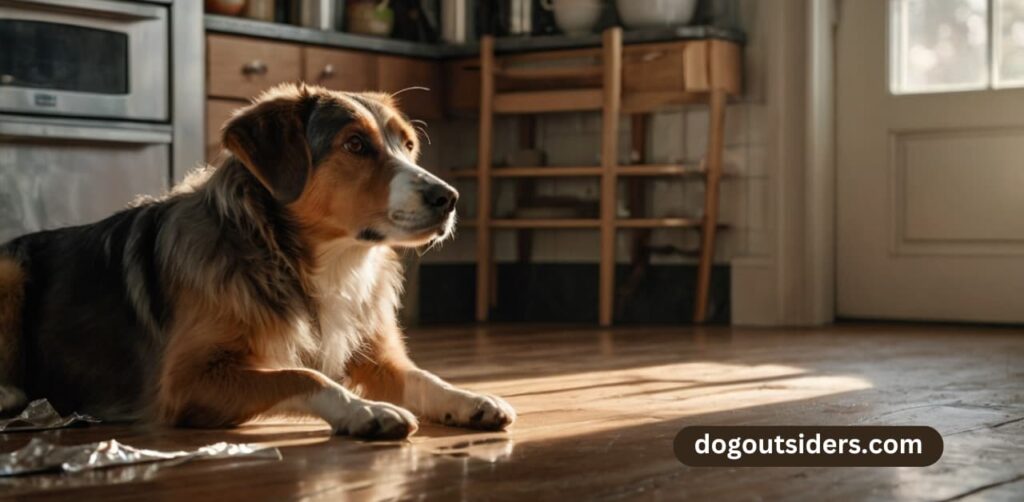
Secure Household Items
Implement measures to keep aluminum foil and other hazardous items out of reach. Store food items securely to prevent dogs from accessing wrapped leftovers. Educate family members about the importance of proper disposal of aluminum foil.
Training and Supervision
Train the dog to avoid eating non-food items, including aluminum foil. Supervise the dog during meal times to prevent scavenging behavior. Use positive reinforcement to encourage good eating habits and discourage foil ingestion.
Safe Disposal Practices
Dispose of aluminum foil properly to minimize the risk of ingestion by pets. Avoid leaving scraps of foil in easily accessible areas for the dog. Educate others in the household about safe disposal methods for aluminum foil.
Incorporating these strategies into your daily routine can significantly reduce the chances of a tragic accident involving your beloved pet. Remember, prevention is key when it comes to keeping your furry friend safe and healthy.
Closing Thoughts
Eating aluminum foil can pose severe health risks to dogs, including blockages and poisoning. It’s crucial to act fast if your dog ingests aluminum foil, seeking immediate veterinary assistance. Understanding these risks empowers me to take preventative measures, such as keeping aluminum foil out of reach and opting for safer food storage alternatives. Remember, a quick response could save your furry friend’s life.
Frequently Asked Questions
Yes, ingesting aluminum foil can lead to serious health issues for dogs. It can cause blockages in the digestive system, leading to severe complications or even death if not addressed promptly.
No, even small pieces of aluminum foil can pose a risk to dogs. It is crucial to keep all aluminum foil and similar items out of reach of pets to prevent accidental ingestion and potential harm.
Symptoms of aluminum foil ingestion in dogs may include vomiting, diarrhea, abdominal pain, lethargy, loss of appetite, or difficulty defecating. If you notice any of these signs, contact your veterinarian immediately.
To prevent your dog from ingesting aluminum foil, ensure that all food wrappers and packaging are disposed of properly and kept out of your pet’s reach. Supervise your dog around areas where aluminum foil may be present.
If you suspect that your dog has ingested aluminum foil or if you notice any concerning symptoms, such as vomiting or abdominal discomfort, contact your veterinarian immediately. Early intervention is crucial in such cases to prevent complications.

